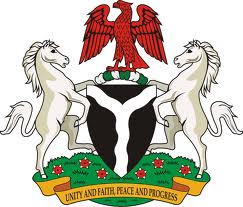 Quality assurance monitors in the education sector have identified low teacher capacity as a major factor responsible for poor performance of students in their academic work.
Quality assurance monitors in the education sector have identified low teacher capacity as a major factor responsible for poor performance of students in their academic work.
This observation was made by participants at a two-day workshop on “Monitoring of Stakeholders Involvement in the Implementation of Quality Assurance and Guidelines,” which was organized by the Federal Inspectorate Department in Keffi, Nassarawa State. Participants unanimously agreed that low teacher capacity, poor implementation of the national curriculum and non-adherence to the National Education Policy by schools are the major obstacles to achieving the desired quality assurance in the educational system.
They also called on governments at all levels to motivate their teachers through special responsibility allowance and other incentives such as housing schemes to attract qualified persons into the teaching profession which many now consider as a stepping stone to greener pasture.
The Director of the Federal Inspectorate Services of the Federal Ministry of Education, Fatima Ahmed in her opening address noted that the major determinant of the quality of education systems is the outcome of learners, which must meet acceptable degree of excellence measured by achievement, attainment and standards. She also stressed that the prevailing spate of examination malpractices – mass failure of students in public examinations, high rate of school drop – outs and un-employability of graduates all point to the fact that the nation is in dire need of effective quality assurance processes.
The Director further announced with regret, the poor mental state of many teachers, citing the case of a class teacher who was not able to pronounce what he had written on the board or knowing the meaning. She urged the State Governments to embark on practical steps towards mass recruitment and training for their teachers to address the observed challenges.
Speaking earlier, the Director of Inspectorate Planning and Policy Implementation, Nwosu Chioma explained that the workshop was to review the level of implementation of quality boosting measures aimed at improving the standards of education as well as harmonization of key quality assurance interventions as stipulated in the Quality Assurance Instruments.
In her paper titled: “Teacher Quality and Curriculum Issues”, Appolonia Okwudishu of the Faculty of Education in the University of Abuja underlined the strong link between teacher capacity and implementation of the curriculum, which is the national framework for academic content at varied levels.
She observed that many teachers are not able to cover the curriculum effectively because of their own deficiencies and called for continuous training and retraining of teachers to enhance their capacity. The issues of care, guidelines, support, management and partnership, funding as well as monitoring and evaluation were tabled for brainstorming in the course of the workshop. Other issues raised include: non implementation of Quality Assurance Evaluators’ reports, failure of private school proprietors to comply with government policies as well practice by many private school proprietors to stop the salaries of their staff during holidays which they noted as serious cause for concern.
Support InfoStride News' Credible Journalism: Only credible journalism can guarantee a fair, accountable and transparent society, including democracy and government. It involves a lot of efforts and money. We need your support. Click here to Donate
